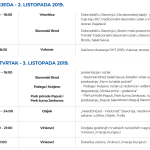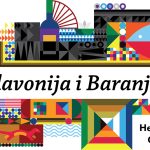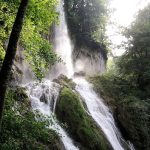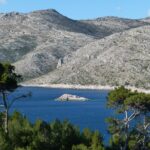October 6, 2019 – Head on East – Hedonist: the new slogan for Slavonia and the east. Ten things I learned about Baranja, Slavonia and Srijem over the last few days.
Anyone who was anyone in Croatian tourism (and one fat Brit) headed on east this week, as Days of Croatian Tourism was held in continental Croatia for the first time. TCN was there the entire time, taking the opportunity to get to know this region less travelled a little better. It is a region I do not know as well as I should, and so I decided to use the opportunity to explore the region a little more, in addition to the official events, to see what I could discover.
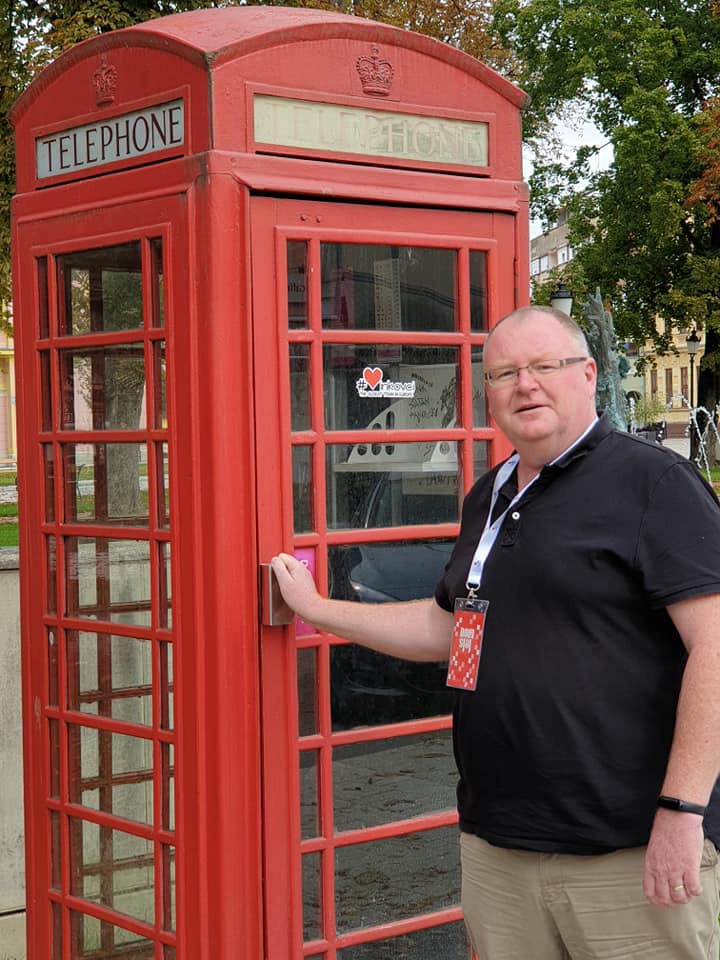
It was a fascinating few days, so much so in fact, that I am heading on east again in a couple of weeks to explore the region a little further with the family. There were surprises at every turn, not only finding an old British telephone box in the centre of the oldest continuously inhabited town in Europe.
Here are 10 things I learned about eastern Croatia that I did not know last week.
1. Baranja is Croatia’s closest connection to the most connected airport in the region – Budapest.
In my mind, I had always thought of the gorgeous wine region of Baranja as being at the end of the world in terms of Croatian geography. Which I guess it is if you start from the island of Hvar, where I lived when I first visited several years ago.
However, if you close your eyes and have a little reset about perceptions of geography and tourism, the reverse is actually true. As I was touring Popovac Primary School close to the Hungarian border, it suddenly occurred to me that the most important international airport in the region, Budapest, is not that far away. In fact, there is nowhere closer to Budapest in Croatia than Baranja. With current roads (in the process of being upgraded), the journey time from the airport to Baranja is two hours. And Budapest connects with pretty much anywhere, 12 months of the year – the home of WizzAir and popular destination for many low-cost airlines.
Far from being far away, Baranja is actually very accessible, and if we can develop a message to convey that, the region immediately becomes more interesting from a tourism perspective.
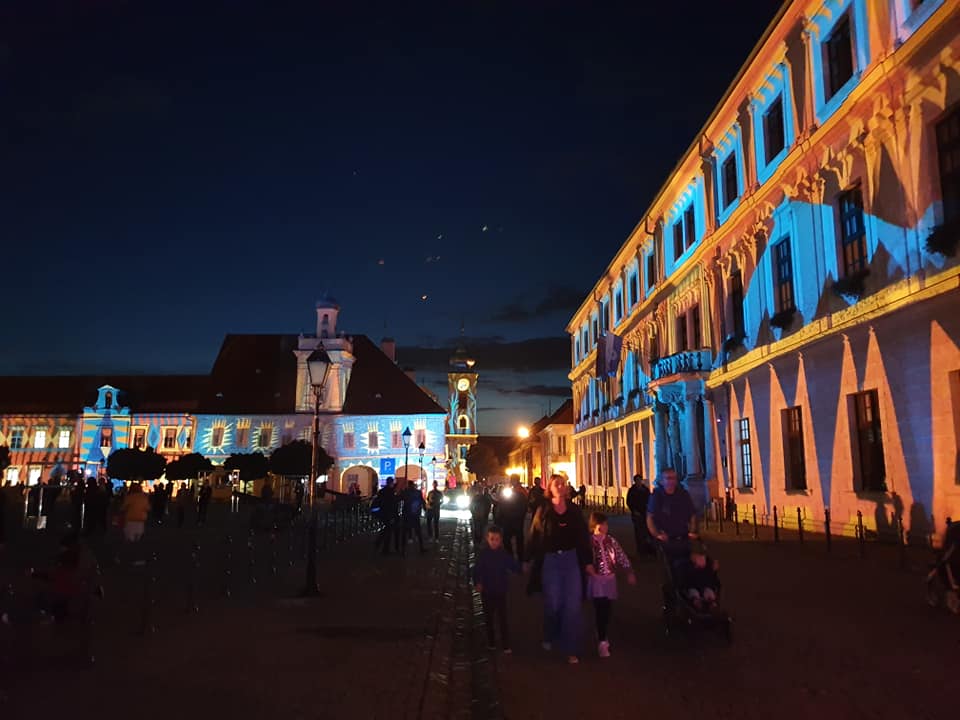
2. Osijek Fortress is a MAGNIFICENT festival venue (and let’s hear it for Eltz Palace in Vukovar too).
Osijek Tvrda fortress was GORGEOUS during Days of Croatian Tourism. The historic old town shone, and the accompanying food festival and concerts were a total hit. Many locals were wandering around in wonder at the beauty of the city, while the visiting tourism chiefs (some for the first time) were totally impressed. It felt a little like Advent in Zagreb but with more of an authentic gourmet feel, as well as a more historic heritage backdrop. With the imminent reopening of one of the main squares and a continued project to upgrade the old town, things will only get better. Osijek showed it could stage a spectacular festival, and it was a privilege to have been there.
And it wasn’t just Osijek. Eltz Palace in Vukovar hosted the first evening of Days of Croatian Tourism. And for those who thought that Vukovar is all about the suffering and the war, the event at Eltz was a real eye-opener. As you can see below, a stunner.
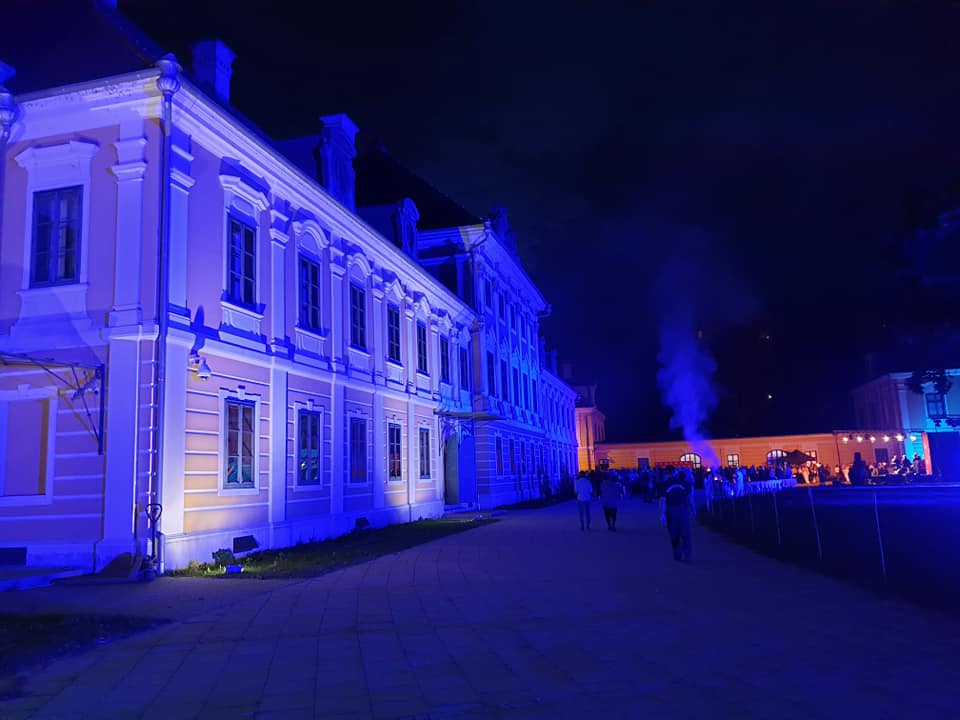
3. The process of metal casting began in Slavonia.
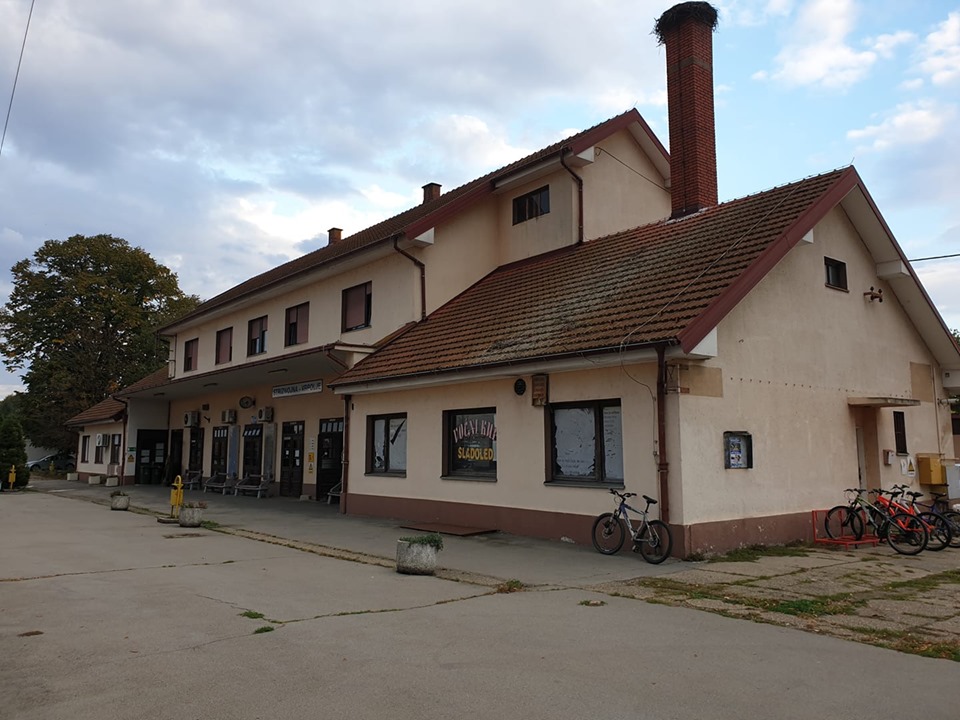
I knew that Vinkovci was the oldest continuously inhabited town in Europe, dating back some 8,300 years, and that its Vucedol culture had several world firsts, but I didn’t know that they included the first metal casting in the world. Just one of many things you can learn on a walking tour of the historic centre, just one of many things you can pick up from the excellent tri-lingual signage (Croatian, English and German) around the town.
Goran Rihelj, the man behind the excellent HR Turizam and the initial instigator to bring Days of Croatian Tourism to Slavonia, has been inviting me to stay for years. It was a pleasure not only to meet and stay with his family during this, his finest hour, but also to walk the Vinkovci streets with him to learn more of their secrets.
4. Vinkovci has a river which flows in both directions.
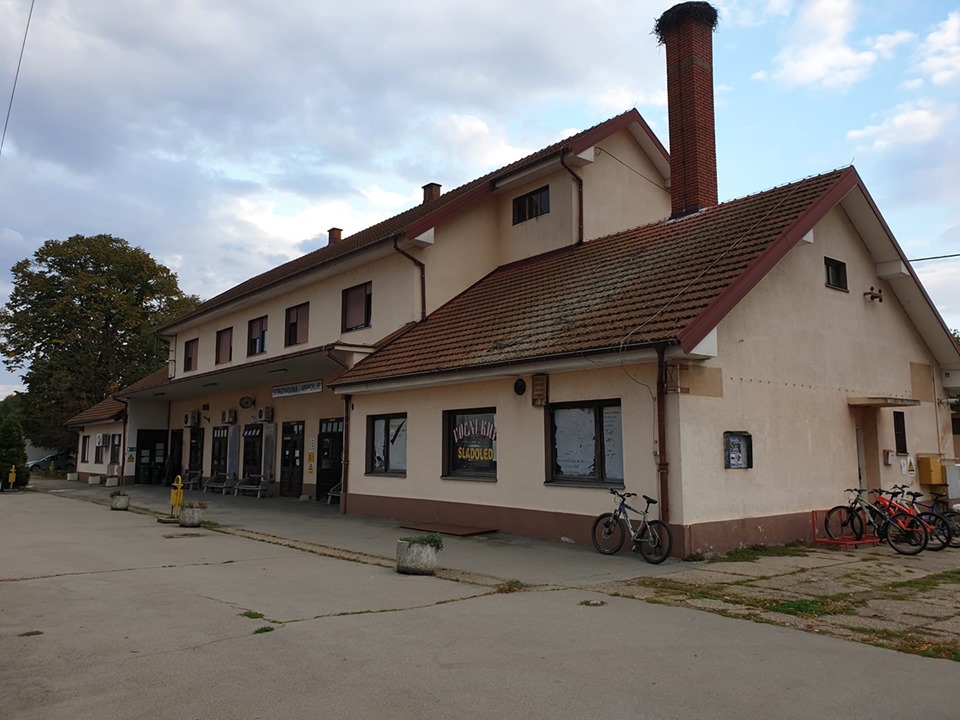
I need to research this one a little more, but there are only a handful of rivers in the world which can flow in both directions. The River Bosut, which flows through Vinkovci, is one. Apparently, there is a very slight incline as the Bosut passes through the town (0.8%) and when the wind gets up, the water heads backwards.
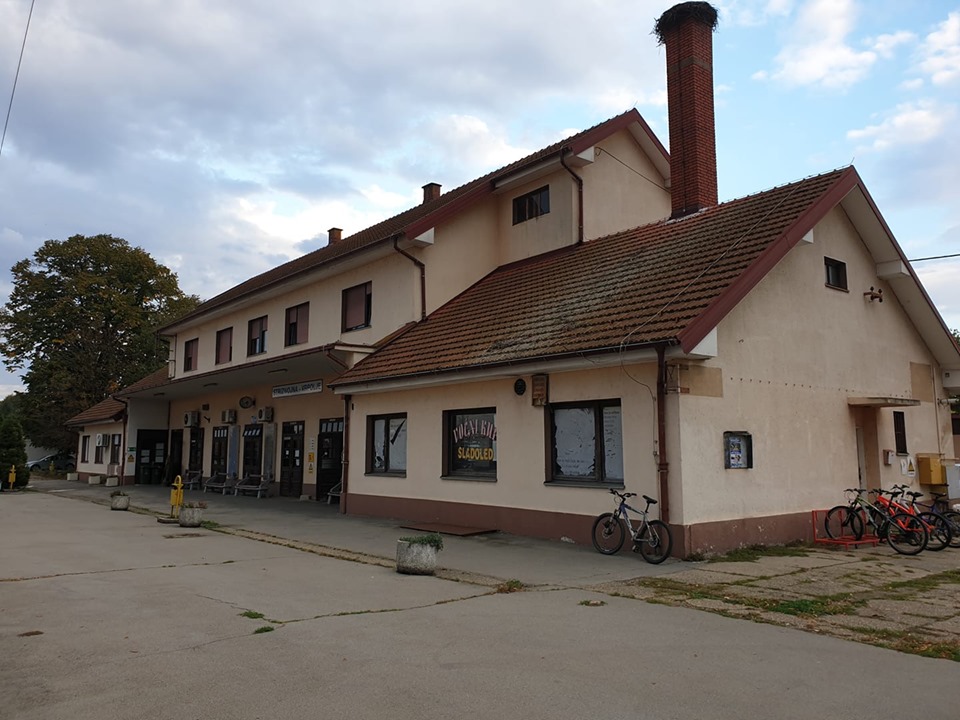
5. There is a quality British pub literally in the middle of nowhere.
So why is there a British phone box in the middle of Vinkovci? It is due to one legendary man from Leeds, apparently, who came to the region in 1991 to help defend Croatia. I have yet to meet Steve Gaunt or read his story in any detail, but he was apparently wounded in the fighting and became a Croatian citizen in 1994.
In addition to bringing the phone box, Gaunt also recently opened an authentic English pub in a village close to Vinkovci. Actually, it is not in a village at all, more in the middle of nowhere and then a little further.
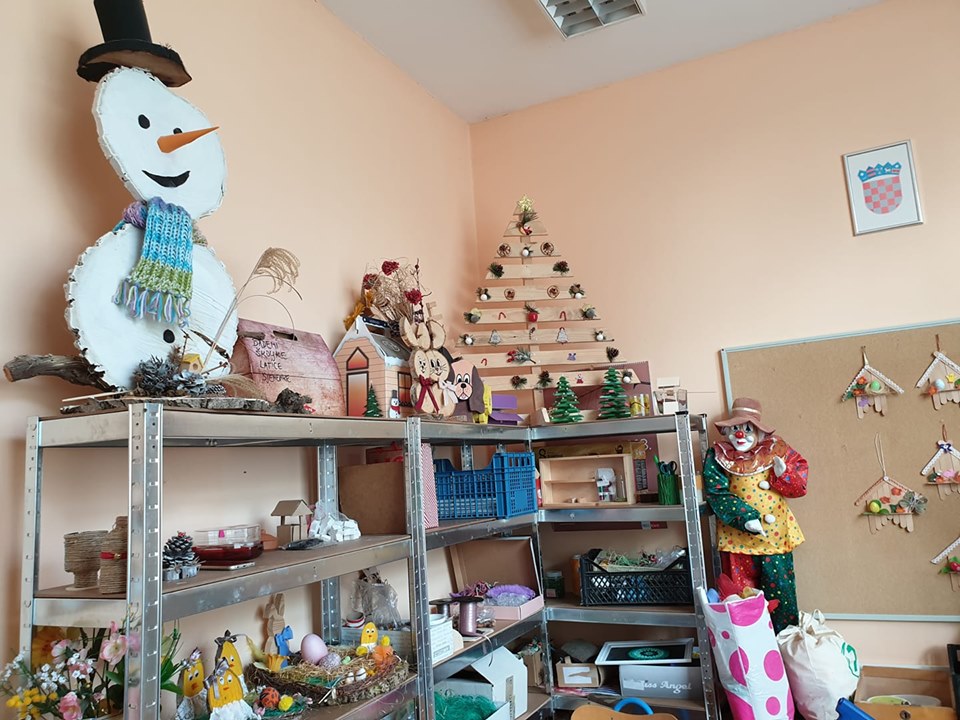
I managed to find The White Boar eventually, which was sadly closed. Steve replied by text that he had to pop back to the UK, so we will save that pint for the next visit in a couple of weeks. There will be a separate story on my journey to The White Boar soon. While you wait, here is where you need to be if you fancy popping in for a pint.
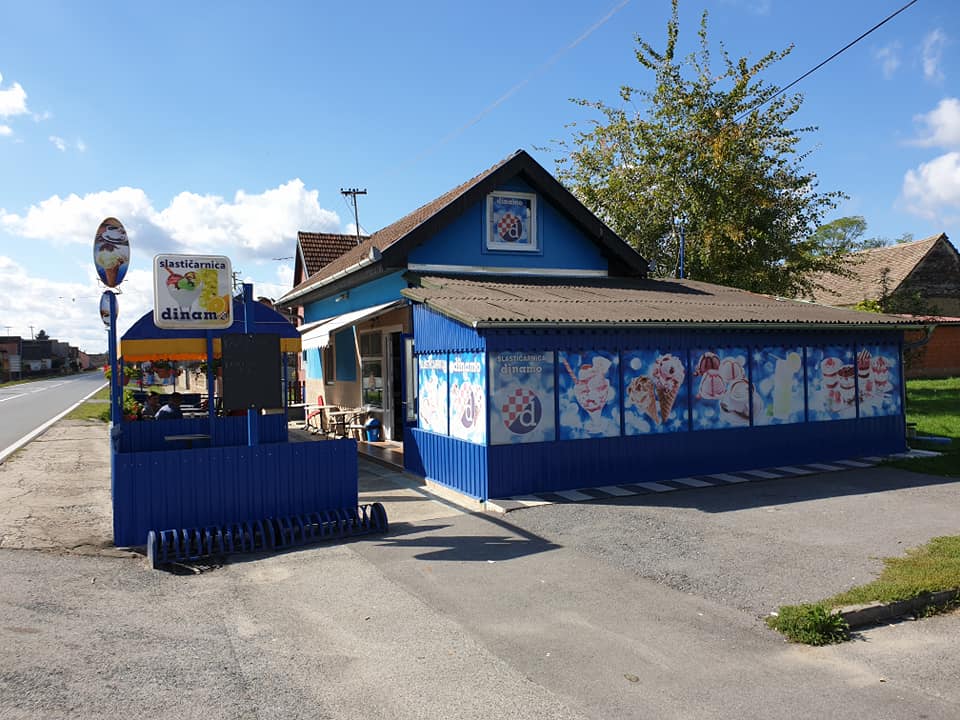
6. Baranja has international ice cream tourism, a Mecca for ice-cream loving Dinamo fans.
“But did you know that Baranja has the best ice cream in all Croatia?” I was asked. Ha, this to a boy from Jelsa – no chance.
And so I set off in pursuit of a rather curious story which is bringing a totally different type of tourism to Croatia – ice cream tourism. Not one for Hajduk fans perhaps, but Slasticarnica Dinamo in Baranjsko Petrovo Selo is located just 2km from the Hungarian border. The ice cream is so good (and it really is) that many Hungarians come over for an ice cream.
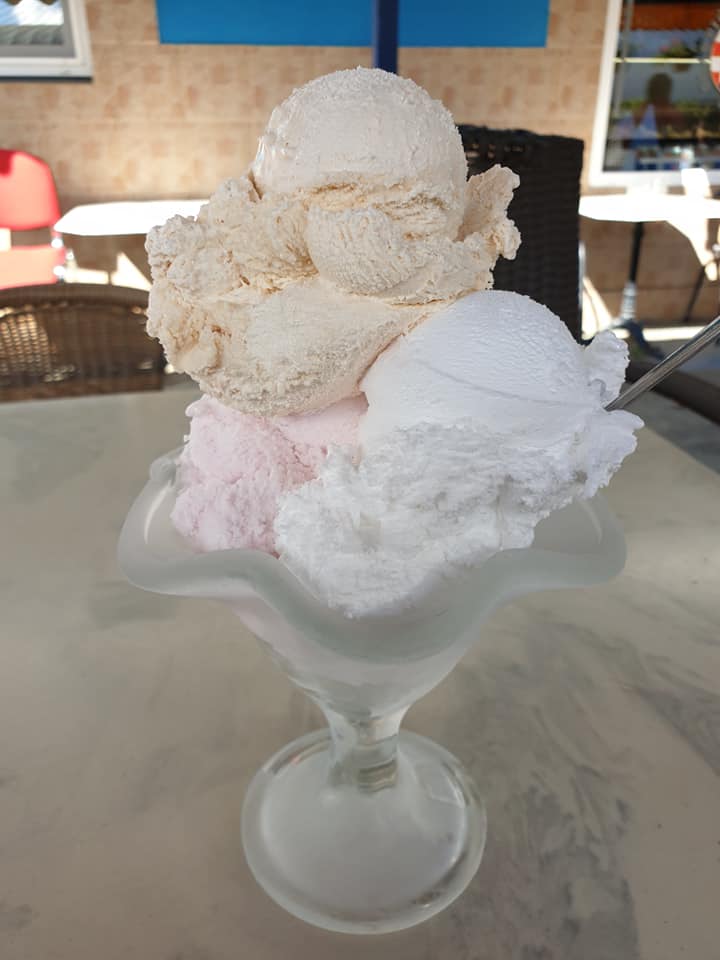
And with prices at just 5 kuna a scoop and the scoops the size of small footballs, this is what you get for 15 kuna. Or coffee and Cedevita for 10 kuna…
7. A craft beer named after a beer-loving Roman Emperor who was born in Slavonia.
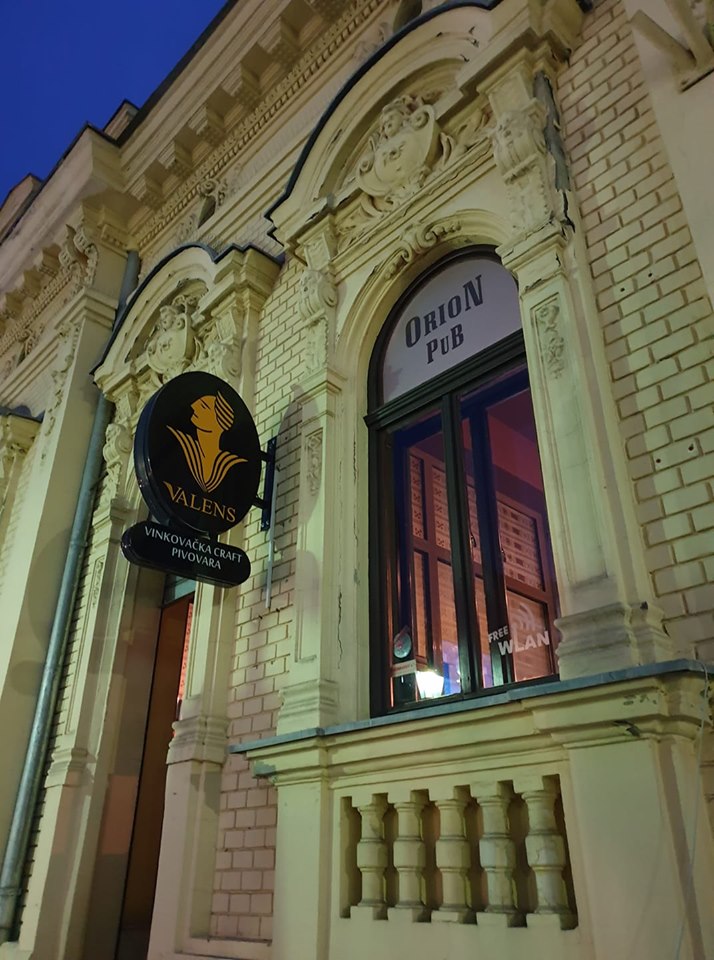
So much Croatian tourism potential and history in this photograph, and the only thing I didn’t know already (and this will shock some of you) was the bit about the beer.
The Valens craft brewery in Vinkovci, another recent addition to Croatia’s vibrant craft beer scene, and another part of Slavonia’s impressive gourmet offering. Named after Roman Emperor Valens, one of two Roman Emperors born in Vinkovci, Valens is the latest chapter in the Slavonian beer tradition which dates back 5,000 years to Vucedol culture. While most emperors drank wine, Emperor Valens was such a beer lover apparently that he enjoyed the nickname Sabaiarius, or ‘Beer Belly’.
And why is the pub called Orion? After the world’s oldest calendar which was discovered in… you guessed it, Vinkovci.
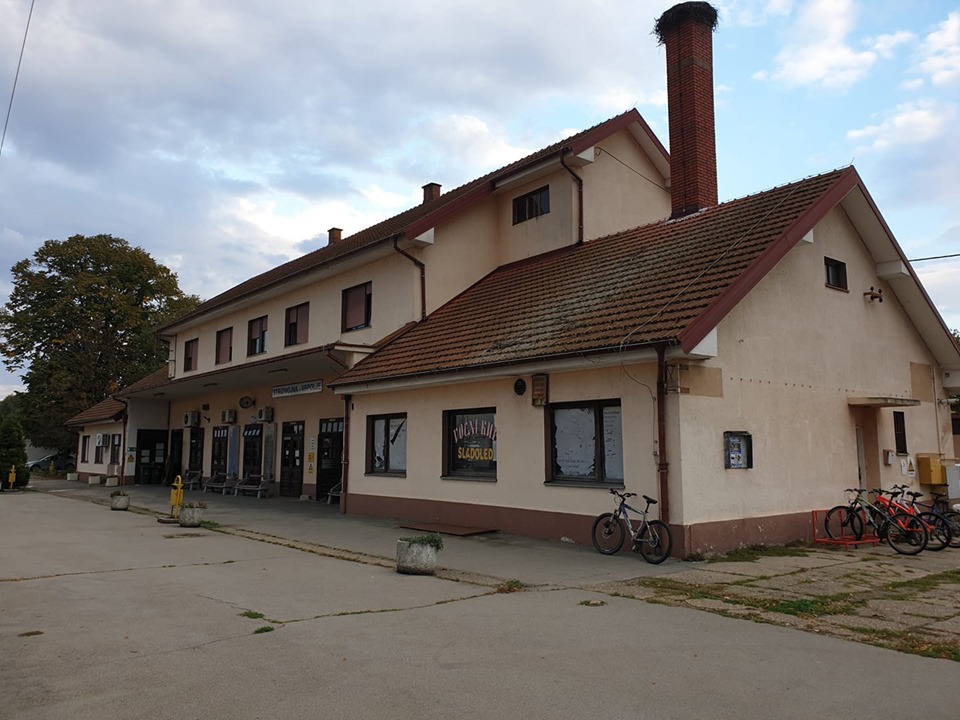
8. A Slavonian train village and Murder on the Orient Express.
A couple of days before I headed east, there was a story in the Croatian media about a small village called Strizivojna which had laid claim to the location as the village near where the famous Murder on the Orient Express killing took place in the Agatha Christie classic. There was talk of turning this into a village tourism attraction with a themed wagon museum and a themed cafe. I decided to pop in, but sadly found myself a little ahead of time, but it will be one more curiosity when it does come to fruition.
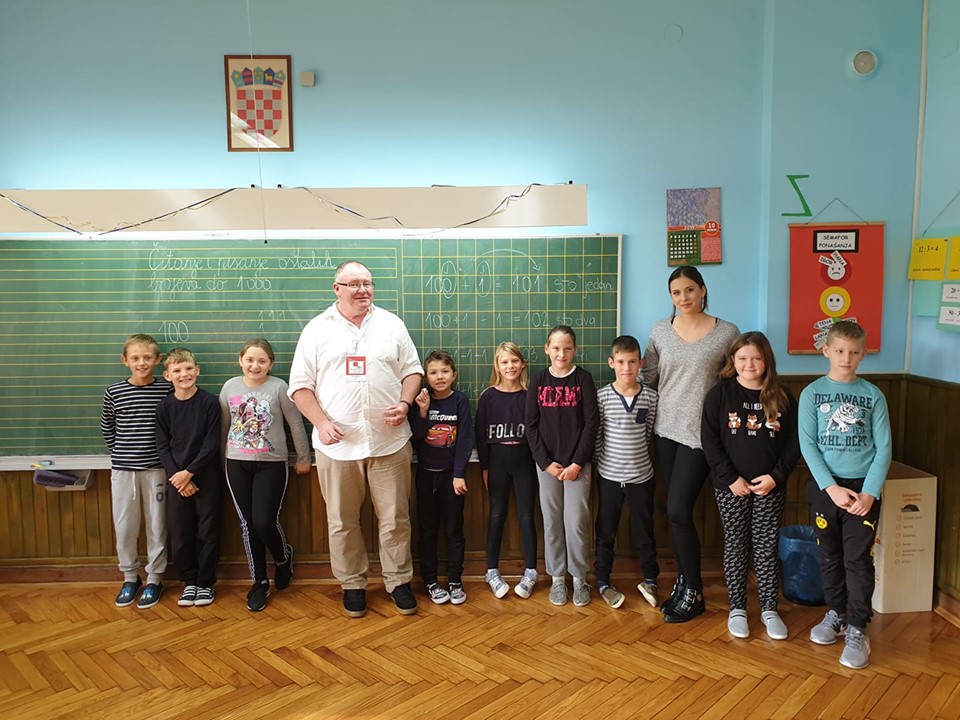
9. Life in a Baranja school – wow!
And while everyone else attending Days of Croatian Tourism was understandably there for the tourism, the part I was looking forward to most was visiting a school in northern Baranja which had reached out to TCN a couple of years ago.
My expectations of what I would find there were low, but what I found was beyond inspiring. The energy, creativity and attitude of the teachers, the well-maintained school and the very happy kids were the undoubted highlight of my few days in the east. Much more on the fabulous Popovac school coming on TCN – a new feature I think many will like.
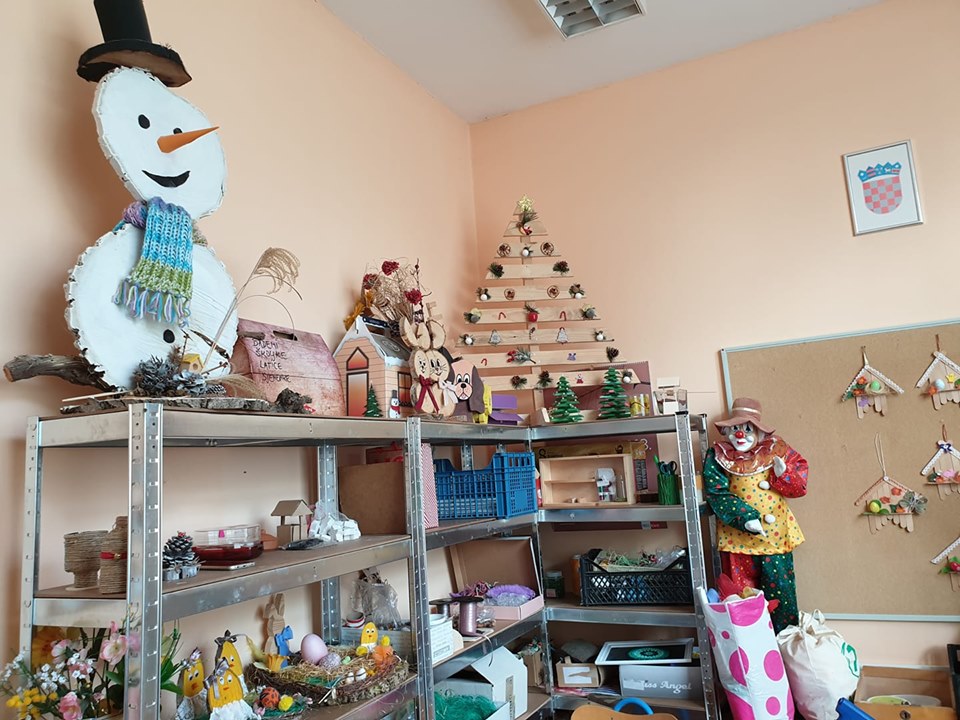
And the other undoubted highlight was a visit to a very dear friend of mine who is undergoing a complete change of direction in life – and one which was awesome to observe at close quarters.
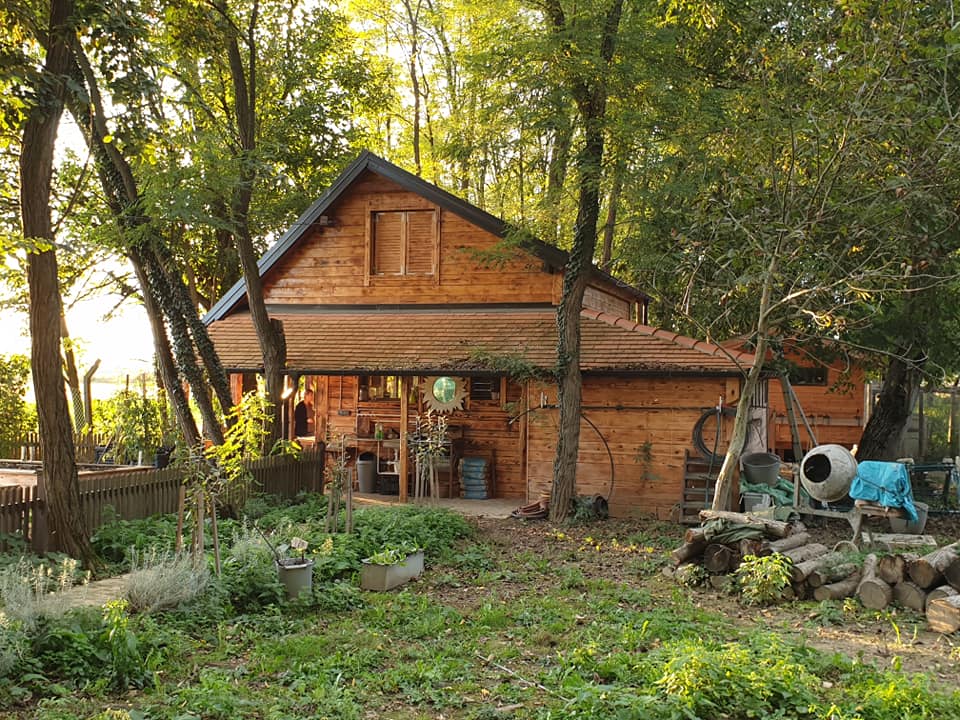
10. Organic Slavonia – gourmet paradise and a model for the future?
TCN readers will be familiar with the incredible photos and timelapse videos of Mario Romulic and Drazen Stojcic. Arguably the best in the business in Croatia and surrounding area, the Osijek maestros have generously supported TCN with their work from day one. But young Mario has had another passion in his head for many years now, and one which he is now giving his undivided attention to – an organic farming lifestyle.
Just a one-night stay took away the stress levels. I had expected to be awoken at dawn by the free-range hens, but instead it was an Osama-lookalike with deep booming voice who woke me from my considerable slumber at 09:40. I can’t remember the last time I slept that long. Located 1km from Kopacki Rit Nature Park, OPG Mario Romulic is an absolute gem, and that is before you come across the passion of the man behind the project. And with 3 hectares of land next door owned by Mario waiting to be developed into an organic tourism resort, this has the potential to become one of the top detox spots in all Croatia.
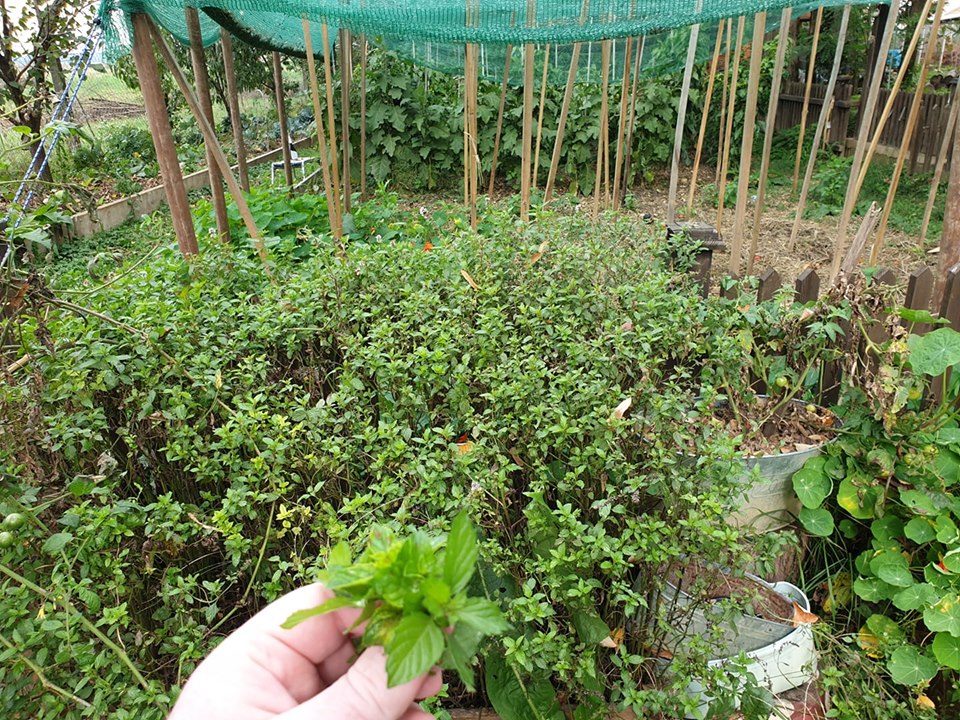
“Tea or coffee with breakfast?” asked Mario, while scrambling his organic eggs and putting together a health Slavonian platter.
“Tea please. That mint tea yesterday was fantastic.”
“So you see the mint in the garden out there? Go and pick some for your tea.”
Three days away from motorways, laptops and the daily grind, and a relaxing journey back in time and pace of life. They talk about the relaxed ‘laganini’ lifestyle in Dalmatia, but Slavonia has something similar.
“So much potential here. This could really be an organic tourism powerhouse.”
And, as I found myself back in the garden collecting more mint, I found myself agreeing. And while agreeing, also thinking about that Croatia 2.0 reset.
Slavonia is treated as a poor cousin with a disability at times in Croatia, at least according to my observations. If it was left to breathe instead, the results would be great.
But I also think that with a little resetting of focus and the way the world is going, regions like Baranja and Slavonia, which boast great nature, a warm people and great gourmet and cultural offers may yet surprise and find themselves as a magnet for those who want to work remotely and enjoy a healthy and clean-living lifestyle.
And now I have Slavonia in my blood, much as I do Dalmatia as well. More to come on our next visit in a couple of weeks. In the meantime, if you want to learn more about this fascinating region, here are 25 things to know about eastern Croatia.


